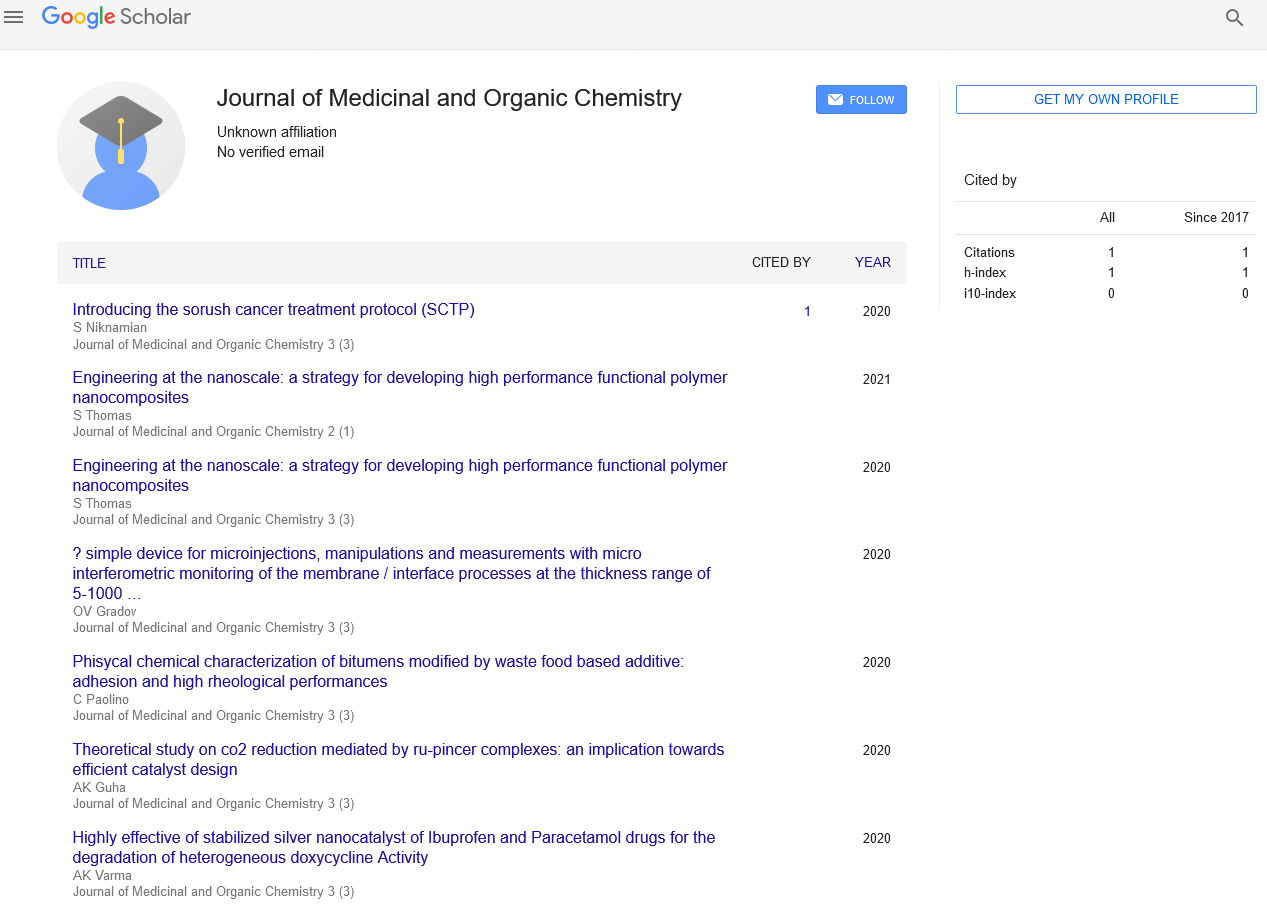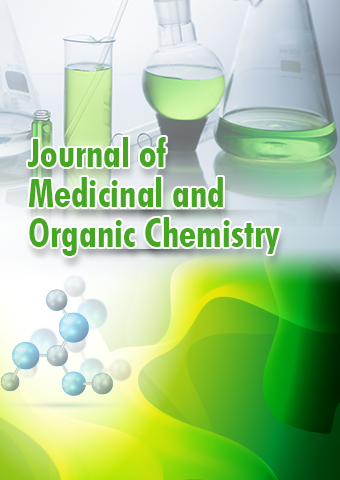Perspective - Journal of Medicinal and Organic Chemistry (2023) Volume 6, Issue 5
Unveiling the Wonders of Immunology: Defenders of the Human Fortress
- Corresponding Author:
- Tanzir Islam Britto
Department of Health Science,
Chittagong University,
Dhaka,
Bangladesh
E-mail: britoislam@yahoo.com
Received: 15-Sep-2023, Manuscript No. JMOC-23-118853; Editor assigned: 20-Sep-2023, PreQC No. JMOC-23-118853 (PQ); Reviewed: 04-Oct-2023, QC No. JMOC-23-118853; Revised: 19-Oct-2023, Manuscript No. JMOC-23-118853 (R); Published: 27-Oct-2023, DOI: 10.37532/jmoc.2023.6(5).123-124
Introduction
Immunology, the study of the immune system, is often described as the guardian of our body, tirelessly defending against countless invaders. This complex and fascinating field of science delves into the intricate mechanisms by which our immune system identifies and fights off harmful pathogens while distinguishing friend from foe. In this we will explore the vital role of immunology in protecting our health, its historical milestones, the components of the immune system, its applications and ongoing research endeavors.
Description
The immune system: Our shield against invaders
The immune system is a complex and highly coordinated network of cells, tissues and molecules working in harmony to protect the body from foreign invaders, such as bacteria, viruses and other pathogens. Its primary mission is to distinguish between self and non-self, defending against anything that is recognized as a threat.
Key components of the immune system
White blood cells (Leukocytes): These cells, including neutrophils, lymphocytes, and monocytes, play a central role in identifying and eliminating pathogens. Lymphocytes are further divided into B cells and T cells, each serving unique functions. B cells produce antibodies, while T cells participate in cell-mediated immunity.
Antibodies: These proteins, also known as immunoglobulins, are produced by B cells and are specific to particular pathogens. They bind to pathogens, marking them for destruction or neutralization by other immune cells.
Bone marrow: The bone marrow is the birthplace of immune cells. It is where stem cells differentiate into various blood cells, including white blood cells.
Thymus: T cells mature in the thymus, an organ situated in the chest. T cells are essential for the coordination of the immune response, helping to activate other immune cells and directly attacking infected cells.
Spleen and lymph nodes: These secondary lymphoid organs filter and trap pathogens and foreign substances, allowing immune cells to survey and respond to potential threats.
Phagocytes: Neutrophils and monocytes are examples of phagocytes. They ingest and digest foreign invaders, a process known as phagocytosis.
Complement system: This system consists of a group of proteins that enhance the immune response. It helps antibodies and phagocytes eliminate pathogens more effectively.
Applications of immunology
Immunology has a significant impact on various aspects of human life and medical practice:
Vaccination: Immunology underpins the development of vaccines, preventing a wide range of infectious diseases by training the immune system to recognize and respond to specific pathogens.
Cancer immunotherapy: Advances in immunology have led to groundbreaking cancer treatments, such as checkpoint inhibitors and CAR-T cell therapy, which harness the immune system to target and destroy cancer cells.
Transplantation: Understanding immunology is critical in organ transplantation to prevent organ rejection. Immunosuppressive drugs are designed to modulate the immune response.
Autoimmune disease management: In autoimmune diseases, the immune system attacks the body’s own tissues. Immunology research has led to therapies that modulate the immune response to manage autoimmune conditions.
Infectious disease research: Immunology is at the forefront of understanding how pathogens interact with the immune system. This knowledge is crucial for the development of treatments and prevention strategies for infectious diseases.
Allergy and asthma management: Understanding immunology is vital in managing allergies and asthma, conditions where the immune system overreacts to harmless substances.
Ongoing research and future directions
Immunology continues to evolve, with ongoing research initiatives and future prospects:
Immunotherapy advancements: Research into immunotherapy, including new checkpoint inhibitors and personalized cancer immunotherapy, holds promise for more effective cancer treatments with fewer side effects.
Vaccine development: Immunologists are working on developing vaccines against emerging infectious diseases and improving existing vaccines to enhance their efficacy.
Immune checkpoint regulation: Understanding immune checkpoint regulation may lead to novel treatments for autoimmune diseases, allowing for more targeted therapies.
Immunogenetics: Advances in immunogenetics are shedding light on the genetic factors that influence the immune response, offering opportunities for personalized medicine.
Mucosal immunology: Research in mucosal immunology is crucial for understanding immune responses at mucous membrane sites and developing vaccines that can prevent infections at these entry points.
Ethical considerations in immunology
While immunology has led to significant medical breakthroughs, ethical considerations must guide its applications:
Informed consent: Ethical research practices necessitate obtaining informed consent from individuals participating in clinical trials, ensuring they understand potential risks and benefits.
Access to treatments: The equitable distribution of immunological treatments and therapies is a fundamental ethical concern, especially in the context of expensive treatments.
Safety and monitoring: As immunotherapy evolves, ensuring the safety of patients through rigorous monitoring and reporting of adverse events is essential.
Human genetic editing: Emerging technologies like CRISPR-Cas9 raise ethical questions about the potential to edit the human germline and the long-term consequences of such genetic modifications.
Conclusion
Immunology, as the silent hero of human health, plays an indispensable role in safeguarding our well-being. From its historical milestones and key components to its practical applications and ongoing research endeavors, immunology continues to advance our understanding of the immune system and provide innovative solutions for health and disease. As the field progresses, ethical considerations will remain paramount, guiding the responsible use of immunological knowledge for the benefit of all. In the ongoing battle against pathogens, immunology remains the silent yet steadfast defender of our health, protecting us from the invisible invaders that threaten our well-being.

